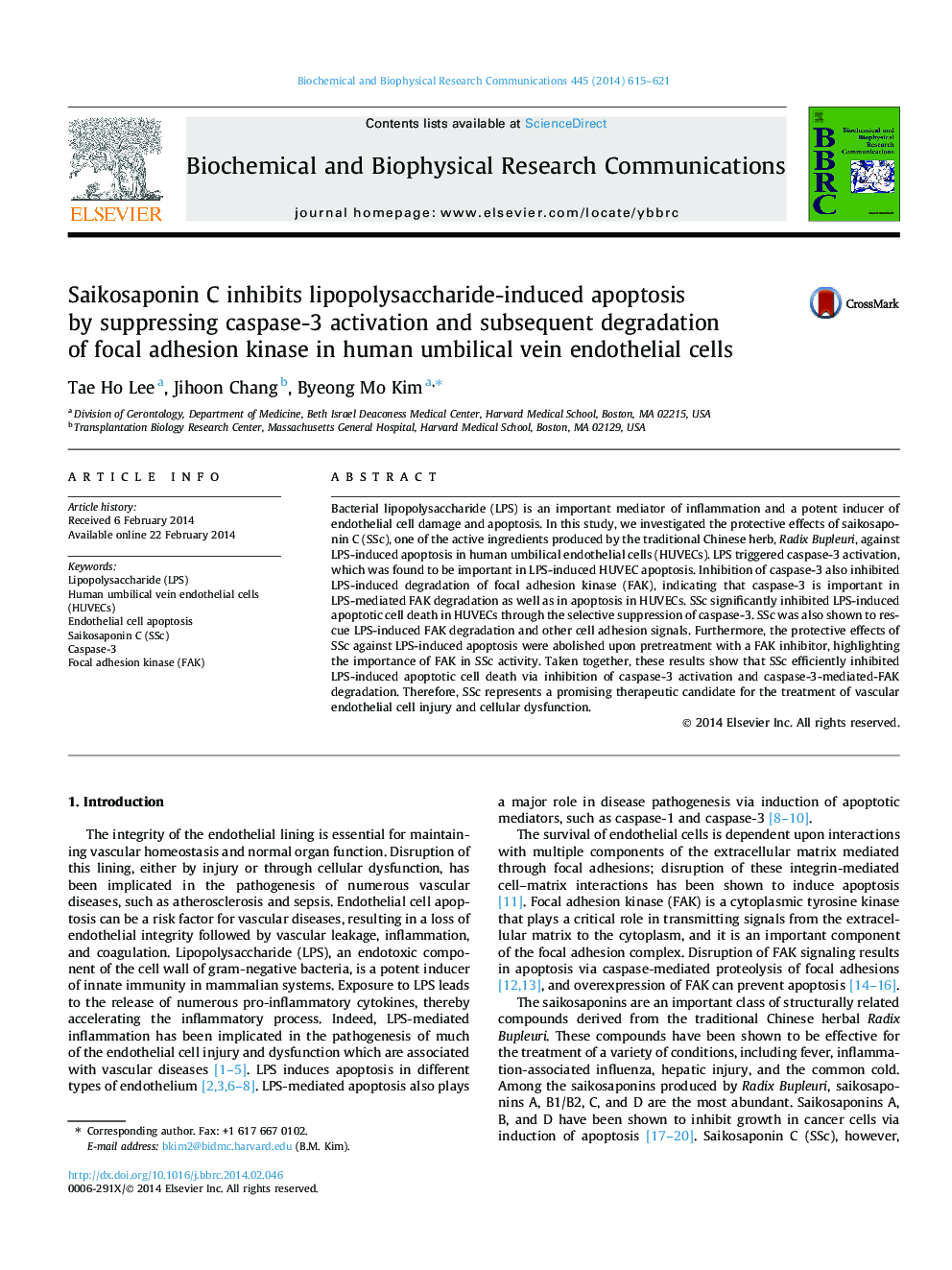| Article ID | Journal | Published Year | Pages | File Type |
|---|---|---|---|---|
| 1928558 | Biochemical and Biophysical Research Communications | 2014 | 7 Pages |
•Caspase-3 and FAK degradation are important in LPS-induced apoptosis in endothelial cells.•SSc inhibits LPS-induced apoptosis.•SSc suppresses LPS-induced caspase-3 activation and FAK degradation.•Caspase-3-mediated FAK degradation is important in the protective action of SSc against LPS-induced endothelial apoptosis.•SSc represents a potential novel therapeutic approach against endothelial injury.
Bacterial lipopolysaccharide (LPS) is an important mediator of inflammation and a potent inducer of endothelial cell damage and apoptosis. In this study, we investigated the protective effects of saikosaponin C (SSc), one of the active ingredients produced by the traditional Chinese herb, Radix Bupleuri, against LPS-induced apoptosis in human umbilical endothelial cells (HUVECs). LPS triggered caspase-3 activation, which was found to be important in LPS-induced HUVEC apoptosis. Inhibition of caspase-3 also inhibited LPS-induced degradation of focal adhesion kinase (FAK), indicating that caspase-3 is important in LPS-mediated FAK degradation as well as in apoptosis in HUVECs. SSc significantly inhibited LPS-induced apoptotic cell death in HUVECs through the selective suppression of caspase-3. SSc was also shown to rescue LPS-induced FAK degradation and other cell adhesion signals. Furthermore, the protective effects of SSc against LPS-induced apoptosis were abolished upon pretreatment with a FAK inhibitor, highlighting the importance of FAK in SSc activity. Taken together, these results show that SSc efficiently inhibited LPS-induced apoptotic cell death via inhibition of caspase-3 activation and caspase-3-mediated-FAK degradation. Therefore, SSc represents a promising therapeutic candidate for the treatment of vascular endothelial cell injury and cellular dysfunction.
